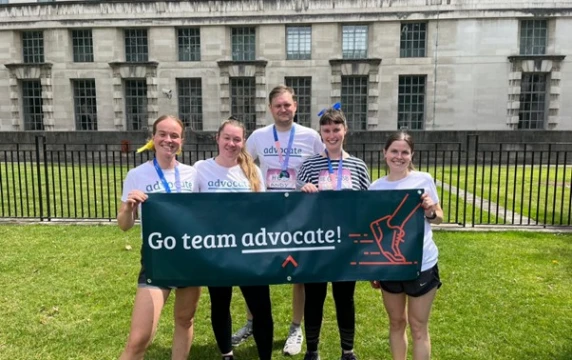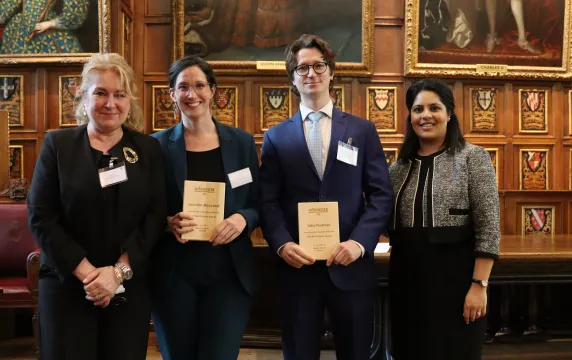At what stage in your career did you take on your first pro bono case?
I took on my first pro bono case in 2004. In the same year I conducted a 5-day discrimination case at Watford Employment Tribunal at the Free Representation Unit.
Why did you decide to undertake pro bono work?
My primary reason for undertaking pro bono work was to provide benefit to the community that might otherwise not be available. The cost of skilled legal services is very high and beyond the reach of many people. The system of public funding has been stretched for a long time. The Free Representation Unit and Advocate are also always looking for able lawyers to provide advice and representation.
What was the most memorable case you worked on, and what did you do?
The most memorable case I worked on recently was the Employment Appeal Tribunal case brought by Daniel Cox. Not only was I able to advise him in relation to his rather dense grounds of appeal which were rejected during the initial paper sift (and obtain permission to appeal), but I successfully obtained judgment in March 2021 in his favour following a final EAT Hearing remitting his whistle blowing claim back to the Employment Tribunal. This ensured that Daniel Cox’s claim raising complex and important whistle blowing issues (in the public interest) will be properly considered at a further Tribunal hearing. Without my input through the ELAAS and Advocate schemes, the appeal may not have been permitted to progress.
Many years ago I was also instrumental in terms of successfully obtaining judgment following a final hearing in favour of a Portuguese baker (who spoke little English), he had not been paid minimum wage for over a decade, and he was dismissed without notice following 25 years’ service.
What effect did pro bono work have on your career?
Pro bono work has certainly helped me to develop as a lawyer and as a person. It provides invaluable experience of real face-to-face client contact, interviewing, researching and drafting skills, and in addition, important advocacy opportunities at court and tribunal hearings.
What is the most rewarding thing about doing pro bono work?
The most rewarding thing about doing pro bono work is that it exposes you to new perspectives on social, economic, and political matters that may be remote from your own experience. You work with a diverse range of clients that you may not otherwise be instructed by. This can help a barrister both in terms of career development and in life generally.
What advice would you give to any barrister unsure about whether to start doing pro bono work?
Pro bono experience which is relevant to your career route at the bar may well assist you to reach the goals that you have set for yourself. For example, if you want to develop your practice in landlord and tenant matters, pro bono experience may be attractive to potential employers. It may also demonstrate commitment to justice, dedication, flexibility, teamwork, open mindedness, organisation, or other characteristics required by employers, chambers, or future applications you may choose to make as you develop your career at the bar. You can commit small portions or significant time depending on your availability, taking on a specific piece of work for example, using Advocate’s unique scheme to meet with your diary commitments.
What would you like to see happening with pro bono and access to justice in the next 25 years?
The important role legal services can play in the national recovery from the pandemic should be advanced by a drive for greater access to justice for the most vulnerable. There is a need to widen public access to legal advice and support, as crucial elements of the government’s plans to ‘level-up’ the justice system. Legal services will be crucial to the nation’s recovery from the pandemic, since they underpin a well-functioning economy, the rule of law and the fabric of our society. I am immensely proud of the outstanding job our barristers have done to support the public during this difficult period, with advocates, criminal defence, wills, probate, family, employment, civil/common law, and human rights lawyers stepping up to ensure the justice system keeps running. Over the next 25 years we will need to keep looking at innovative and diverse ways to deliver access to justice, and technology will no doubt play an important role in this.







